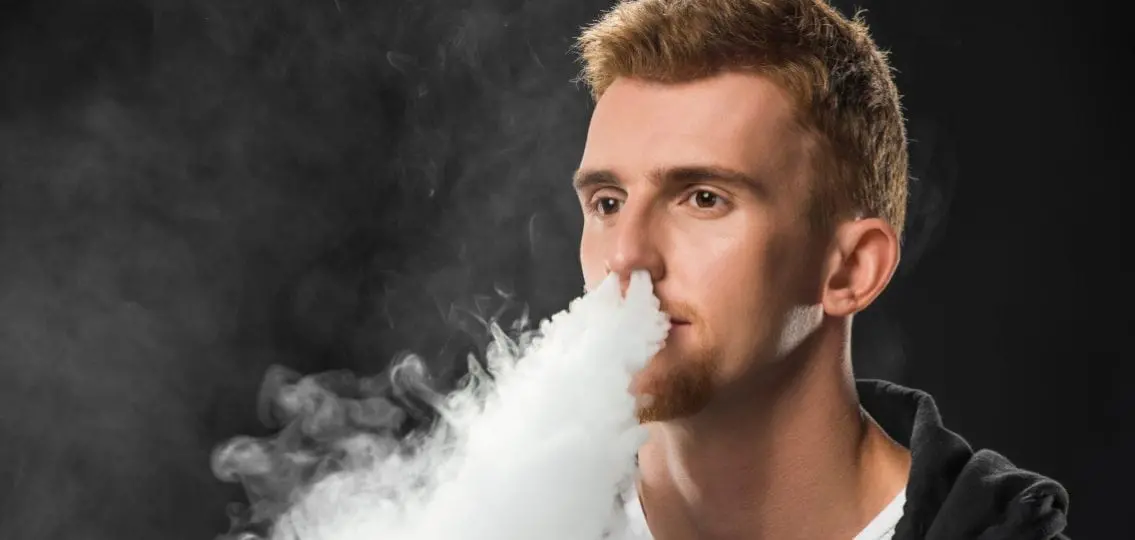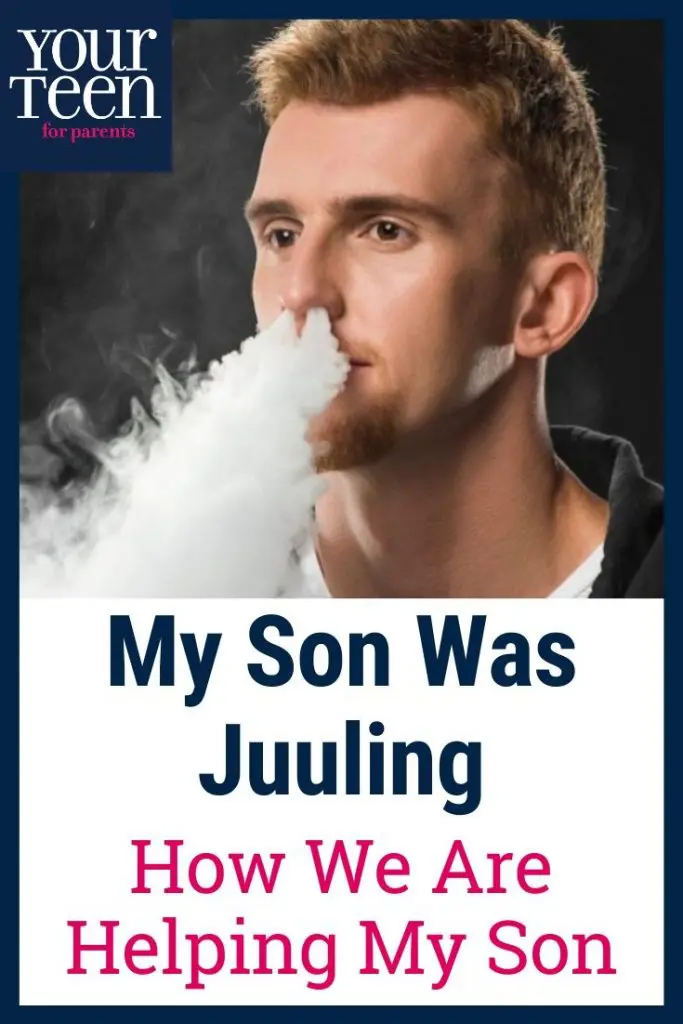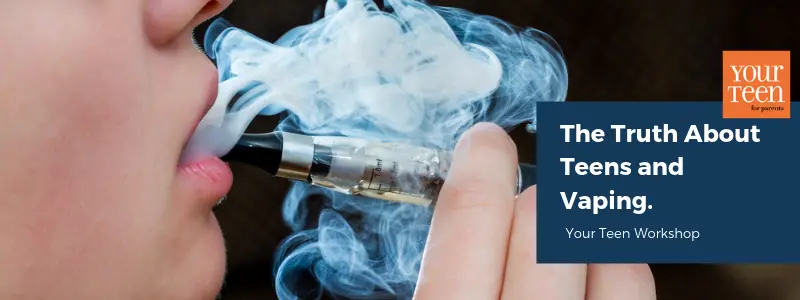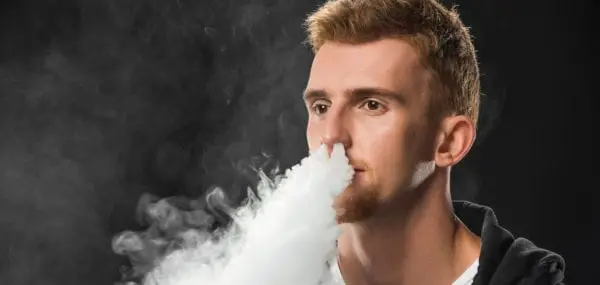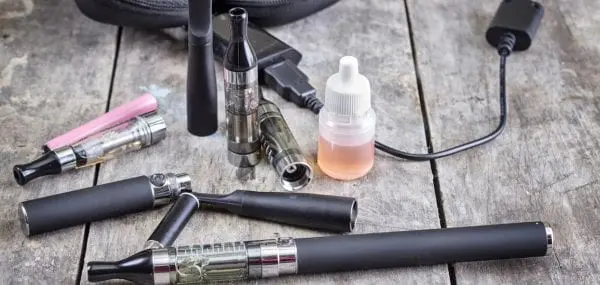Smart kids can make bad decisions with an almost palpable ignorance of the consequences. We noticed that our son had lost a significant amount of weight and frequently came home with his lunch untouched. It was time to investigate.
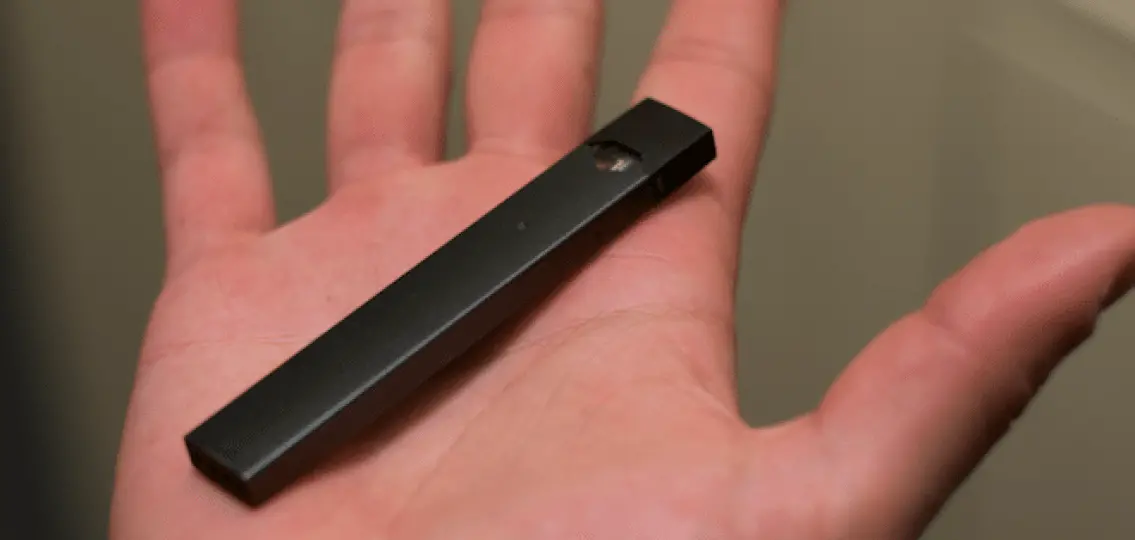
In the span of just a few months, our 16-year-old son went from decrying ever putting anything into his lungs to using vape pens, Juul cartridges, bongs, and nitrous oxide.
He was coming home high, and money was flying out of his account.
My Son’s Drug Use: It Started With a Lighter
You might call it a perverse kind of timeline to a journey no parent wants to take. It started with a lighter, so I knew something was getting smoked. Then I discovered the cap to a Juul cartridge on my son’s bathroom counter—so cavalierly left, as though I would not know what it was.
True, I had never seen anything like it in my son’s possession, but that is precisely what made me not dismiss it as just a random piece of plastic. My suspicion rose quickly; there was awareness in the community about the rampant use of marijuana and vaping in the school bathrooms. A quick Google Image search, and bingo: my suspicions were confirmed.
I have a gallon-sized Ziploc bag of all of the paraphernalia we confiscated.
We found and confiscated a whopping four Juul pens and accessories. Each Juul pen costs about $40. A Juul set with “starter” cartridges is available for $50 online and in any store where cigarettes are sold. We also found high-nicotine cigarettes, presumably for that immediate rush. (One Juul cartridge delivers nicotine in excess of a pack of cigarettes.)
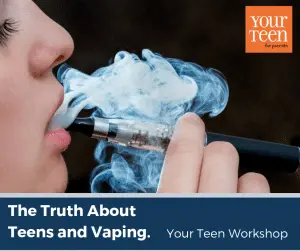
I even found Juul USB chargers plugged into his PS4 gaming device. And my most recent discovery: Mr. SALT-E, a potent, salt-based nicotine liquid used to refill Juul cartridges and other vaping devices.
But there’s more. My husband found a very expensive bong that my son and his friends jointly shared. The balloon with a nitrous oxide canister I discovered hidden in one of his sneakers? That really freaked me out. And the car he drove had a newly added air freshener as a feeble attempt to cover the smell of who knows what.
My son became noticeably aware of where his backpack and car keys were at all times. Both had become vessels that contained evidence of his activities. He was living under the burden of having to conceal part of his life, trying to escape detection and failing.
Our Son’s False Sense of Security
At some level, parents of adolescents are not entirely shocked when they see signs their child is Juuling, or find evidence of their child experimenting with smoking or drinking. That said, of course we were naturally deeply disappointed that the lessons we have imparted seem so quickly erased by an increasingly independent young adult. One who is curious, and along with his peers, feels immune to the consequences of smoking and other substance habits.
In one of our conversations, our son told us, “It’s not that bad. Vaping is safer than smoking,” and “Pot is legal in many states.”
We desperately cited that “safer than” does not mean “safe” and anything you take into your lungs by heat or combustion has carcinogenic qualities. These arguments fell on deaf ears.
Our Efforts to Get Him to Stop Using Substances: He Needs Our Help
So, what did we do? I will admit that I became a first-class sleuth and snoop. We put a tracking device on his car keys. We drove by houses to make sure he was where he said he was going to be. Short of homeschooling or an in-patient facility, it’s fair to say that we experimented with an arsenal of tactics aimed at getting our son to stop Juuling and other substance use.
We tried punishment. He was grounded for weeks until urine tests proved clear of nicotine and THC. We suspended his car privileges. I emptied the cash from my son’s account so that he did not have the money to purchase any substances. However, I then became aware that he was redeeming store gift cards online in exchange for credit to an account.
We realized we needed more than punishment for vaping. We needed help on how to stop his juuling.
I called my son’s pediatrician in advance of an appointment to discuss my son’s vaping and marijuana use. The call was routine for our pediatrician, as he regularly speaks to parents in the same predicament. Many parents find Juuls and other things they’re not expecting. Our doctor spoke with my son in my presence and then independently.
Still, the vaping continued. My husband and I have met with a family counselor to arrange sessions so that our son may better understand the reasons why he is continuing to say “yes” in spite of all the reasons he needs to stop.
I was actually relieved when my son was given a detention for vaping in the bathroom at school, where this has become an epidemic. At last, consequences were coming from another direction! And yet, it continues.
| [adrotate banner=”94″] |
We are not giving up. Our son’s health depends on it. He is going to college in the fall and our goal is to have him substance free. We have about twelve weeks, and as exasperating as it can feel, we are not ceding power to the lure of these substances.
Counseling and medically-based smoking cessation therapies are ahead.
There is always the risk that something else, something more potent, is next. We need him to know that he is in control of this and it is within his power to stop.
Our son is the same sweet, blue eyed, respectful person he has always been, the same child we have always loved. Only now, on the threshold of adulthood, he needs our help more than ever.
We don’t get to choose when our kids derail or take a detour in life. We are staying vigilant, keeping the doors of communication open and honest, giving him the chance to do better while holding him accountable.
There has to be an opportunity for redemption, or he may feel there is no point in compliance.
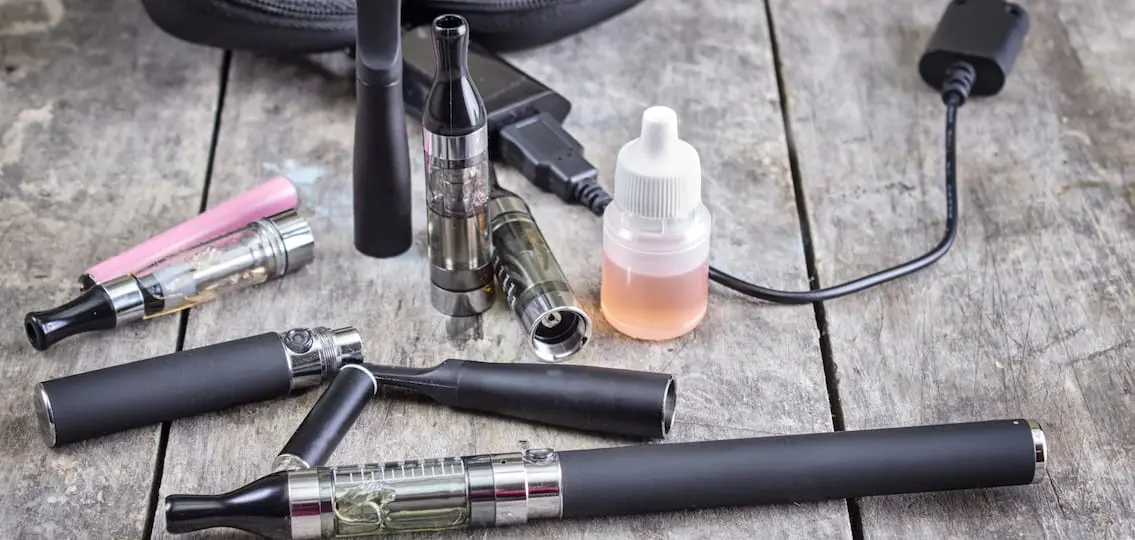
We want our son to believe that he is worthy of trust, capable of compliance, strong enough to say “no,” and always deserving of our love, respect, and understanding.
